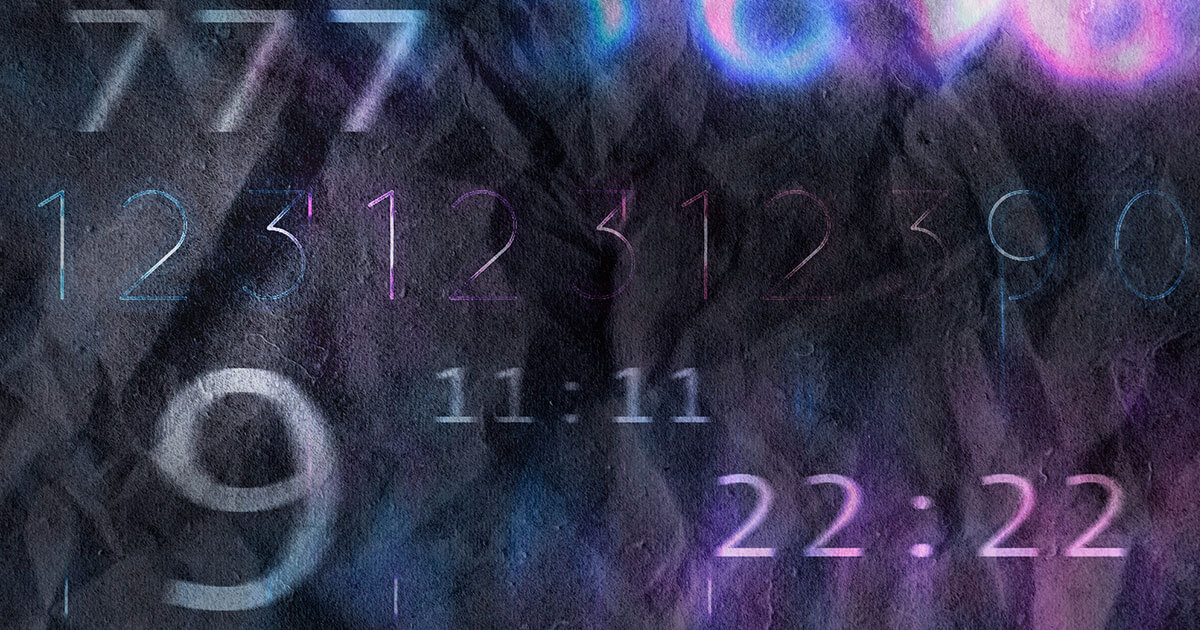Numerology, the ancient study of numbers and their mystical significance, categorizes numbers as either “good” or “bad” based on their vibrational energy and historical interpretations. These classifications influence personal traits, life events, and even decision-making. But why do some numbers carry positive connotations while others are seen as unfavorable? This article explores the origins, meanings, and cultural influences behind numerology’s lucky and unlucky numbers.

The Concept of Good and Bad Numbers in Numerology
Numerology assigns unique attributes to each number, shaping perceptions of their influence. Good numbers are believed to bring prosperity, harmony, and success, while bad numbers may signal challenges or misfortune. These interpretations stem from centuries of observation, spiritual teachings, and mathematical patterns observed in nature and human behavior.
Different systems like Pythagorean, Chaldean, and Kabbalistic numerology analyze numbers differently, but all recognize certain digits as particularly auspicious or inauspicious. The reasons behind these classifications often relate to:
- Historical events tied to specific numbers
- Religious or mythological associations (e.g., 7 in Christianity, 8 in Chinese culture)
- Mathematical properties (primes, Fibonacci sequences)
- Psychological and cultural conditioning over generations
Good Numbers in Numerology and Their Meanings
Certain numbers consistently appear as favorable across multiple numerology traditions. Here are the most universally recognized “good” numbers and their significance:
Number 1: Leadership and New Beginnings
Representing independence and ambition, 1 is associated with fresh starts and pioneering energy. In numerology, it signifies assertiveness and originality, making it powerful for career growth or personal projects.
Number 3: Creativity and Joy
A symbol of self-expression, 3 vibrates with artistic energy and optimism. Many consider it lucky for social connections, artistic pursuits, and manifesting abundance through positive thinking.
Number 7: Spiritual Wisdom
Frequently appearing in religious texts and nature (e.g., 7 colors of the rainbow), 7 denotes introspection, intuition, and esoteric knowledge. It’s considered highly auspicious for spiritual development.
Number 8: Abundance and Power
In many Asian cultures, 8 symbolizes prosperity due to its visual resemblance to the infinity symbol. Pythagorean numerology associates it with material success and executive abilities.
Bad Numbers in Numerology and Their Meanings
Conversely, some numbers carry warnings or negative reputations. While their influence isn’t absolute, numerologists advise caution when these numbers dominate personal charts or important dates.
Number 4: Stability or Misfortune?
In Chinese culture, 4 sounds like the word for “death,” making it highly avoided. Western numerology acknowledges its association with limitations, though it also represents practicality and discipline.
Number 13: The Unlucky Omen
Fear of 13 (triskaidekaphobia) spans multiple cultures, linked to biblical betrayals and Norse mythology. Buildings often skip the 13th floor, showing its persistent stigma as a chaos-bringer.
Number 666: The “Number of the Beast”
From the Book of Revelation, 666 symbolizes temptation and moral tests. Modern numerology sometimes reinterprets it as a call to balance material and spiritual pursuits.
How Numerology Determines Number Qualities
Numerologists use several methods to classify numbers, including:
- Vibrational Frequency: Each number emits a unique energy pattern detectable through numerology calculations.
- Historical Patterns: Recurring events tied to numbers (e.g., 11 in prophecies) shape their reputations.
- Cultural Consensus: Collective beliefs reinforce certain numbers as lucky or unlucky across generations.
Tools like life path number calculators help individuals identify their influential numbers based on birthdates and names.
Balancing Good and Bad Numbers in Your Life
While numerology offers guidance, it emphasizes personal agency. Strategies to harmonize number influences include:
- Awareness: Recognize when challenging numbers appear in addresses, phone numbers, or important dates.
- Remedies: Counteract negative vibrations with affirmations or Feng Shui adjustments.
- Context: A “bad” number in one situation (e.g., 13 for superstition) may be neutral or positive in another (e.g., 13 as a birth number).
For deeper insights, consult a professional numerologist or explore advanced numerology guides.
Conclusion: The Power of Perception in Numerology
Good and bad numbers ultimately reflect humanity’s attempt to find order in the universe’s randomness. Whether you view them as cosmic signals or psychological tools, understanding numerological meanings can provide a valuable perspective—just remember that no number dictates an unchangeable fate.





